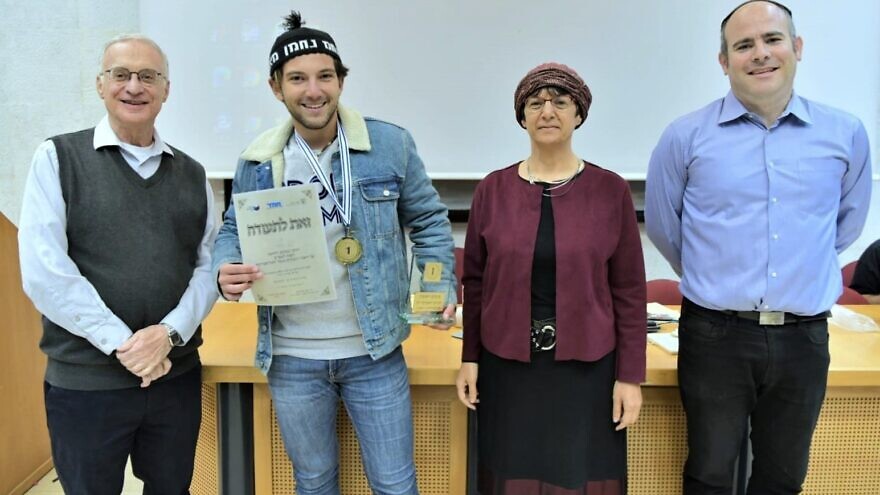Some 200 seniors from religious high schools across Israel recently participated in the Jerusalem College of Technology’s (JCT) ninth annual Physics Olympiad, which advances a vision shared by the college and the Israeli government to better integrate religious youths in the Israeli science and technology fields, as well as cultivate the next generation of innovators in those sectors.
The annual Olympiad, held in cooperation with the Religious Education Administration of the Israeli Education Ministry and Jerusalem’s Science Museum, brings together students from a broad range of yeshivah high schools and ulpans who are studying for five units of Israel’s psychometric exam in physics.
Additionally, JCT Beit Midrash (for men) head Rabbi Amnon Chedri and Midrasha (for women) head Rabbi Yonatan Oren presented lectures on the intersection of science and Judaism.
This year’s Olympiad winners at the Lev Campus for men were Lael Dadi from the Tamar Ariel School in Netanya (first place); Elad Pixler from Kiryat Herzog Yeshiva High School in Bnei Brak (second place); and Yishai Shalman from Torah U’Mada Yeshiva High School (third place).
Winners at the Tal Campus for women were Orin Simani from the Tamar Ariel School (first); Orin’s classmate, Rinat Lepco (second; and Rachel Techiya Biton from the Zviya Ma’aleh Adumim school (third).
JCT awarded tuition scholarships to those individuals who secured the first three places.
“Physics is the foundation of technological developments that shape the world,” said Benni Milgrom, academic coordinator of the Olympiad and a lecturer of electronic engineering at JCT. “The developments that gave Israel prestige in areas such as defense, health and green energy were created by engineers who studied physics at the onset of their careers. The preference given in higher-education admissions to high school students who study physics stems from the need of the state to nurture the next generation of Israeli scientists.”
Shosh Nagar, director of Israel’s Education Ministry’s Religious Education Administration, echoed that sentiment.
“As Israel has almost no natural resources, its primary human resource is the ingenuity of its science and technology professionals,” she said. “Israel relies on this resource to continue establishing its world-renowned socioeconomic and defense fortitude. Israel also relies on these curious scientists, who love to pore over the wonders of creation and who deal with the challenges of tomorrow’s world.”


























